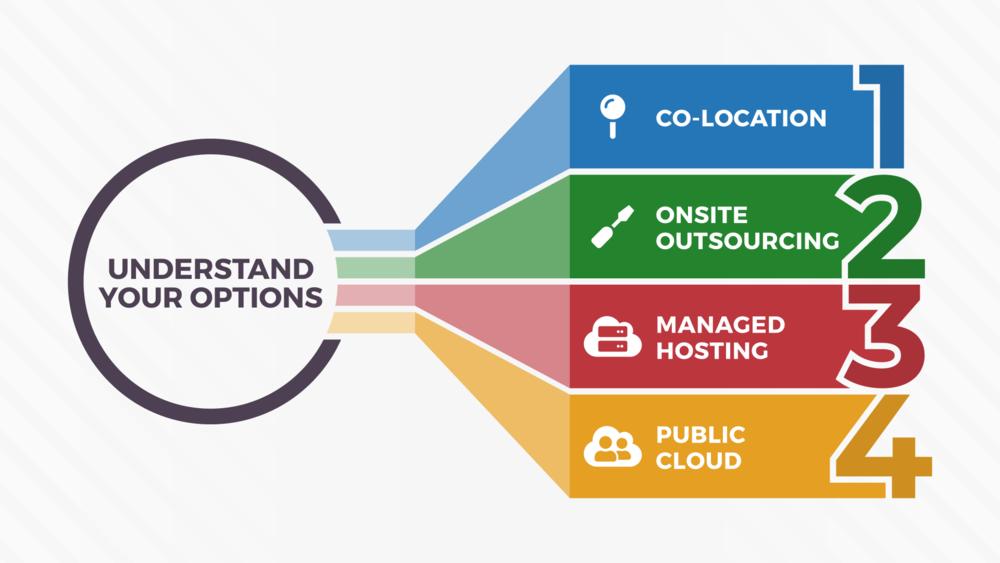In today’s fast-paced digital landscape, businesses are continually seeking innovative solutions to enhance efficiency, reduce costs, and stay ahead of the competition. Cloud computing has emerged as a game-changer, offering scalability, flexibility, and accessibility like never before. However, migrating to the cloud can be a complex and challenging process, requiring specialized skills and resources. This is where outsourcing cloud migration services can offer significant advantages to businesses of all sizes.
Cloud migration involves transferring an organization’s data, applications, and processes from on-premises infrastructure to cloud-based platforms. While the benefits of cloud adoption are well-documented, the migration process itself can be daunting, involving technical intricacies, potential disruptions, and the need for careful planning and execution. Outsourcing cloud migration services to experienced professionals can mitigate these challenges and unlock numerous benefits for businesses.
Expertise and Experience:
Outsourcing cloud migration allows businesses to leverage the expertise and experience of seasoned professionals who specialize in cloud technologies. These service providers have in-depth knowledge of different cloud platforms, migration methodologies, and best practices, acquired through years of hands-on experience working with diverse clients across various industries. By partnering with experts, businesses can ensure a smooth and efficient migration process, minimizing risks and maximizing outcomes.
Cost Savings:
Cost is a critical factor for businesses considering cloud migration. While investing in cloud infrastructure offers long-term cost benefits, the initial migration process can be expensive, requiring investments in hardware, software, training, and personnel. Outsourcing cloud migration services provides a cost-effective alternative, as businesses only pay for the services they need, without incurring the overhead costs associated with in-house migration teams. Additionally, outsourcing eliminates the need for capital expenditures on infrastructure, allowing businesses to allocate resources more strategically and focus on core activities.
Accelerated Time-to-Value:
Time-to-value is crucial in today’s competitive business environment. Delayed migration timelines can result in missed opportunities, increased operational overhead, and diminished customer satisfaction. Outsourcing cloud migration enables businesses to accelerate the migration process, thanks to the specialized tools, methodologies, and resources employed by service providers. With their streamlined approach and proven methodologies, outsourcing partners can help businesses achieve faster migration timelines, ensuring a rapid transition to the cloud without compromising quality or security.
Risk Mitigation:
Migrating to the cloud involves inherent risks, including data breaches, system downtime, and compatibility issues. Outsourcing cloud migration services can help businesses mitigate these risks by leveraging the expertise of professionals who are well-versed in security protocols, compliance requirements, and risk management strategies. Outsourcing partners employ robust security measures and industry best practices to safeguard data integrity, confidentiality, and availability throughout the migration process. Additionally, by offloading the responsibility to experienced professionals, businesses can reduce the likelihood of costly errors and ensure a seamless transition to the cloud.
Scalability and Flexibility:
One of the key advantages of cloud computing is its scalability and flexibility. Outsourcing cloud migration services allows businesses to scale their infrastructure according to changing demands without the need for significant upfront investments or infrastructure overprovisioning. Service providers can tailor migration strategies to meet specific business requirements, whether it’s migrating legacy applications, implementing hybrid cloud solutions, or optimizing cloud performance. By leveraging the scalability and flexibility of outsourced cloud migration services, businesses can adapt to evolving market conditions, drive innovation, and maintain a competitive edge.
Focus on Core Competencies:
Outsourcing cloud migration enables businesses to focus on their core competencies without being distracted by the complexities of migration planning and execution. By delegating the migration process to external experts, businesses can allocate their internal resources more efficiently, focusing on strategic initiatives, innovation, and customer engagement. This not only enhances productivity and morale but also enables businesses to leverage their strengths to drive growth and profitability.
Continuous Support and Maintenance:
The journey to the cloud doesn’t end with migration; it requires ongoing support, maintenance, and optimization to ensure optimal performance and value. Outsourcing cloud migration services provides businesses with access to continuous support from experienced professionals who can address technical issues, optimize cloud resources, and implement upgrades and enhancements as needed. Service providers offer proactive monitoring, troubleshooting, and maintenance services to keep cloud environments secure, compliant, and performant, allowing businesses to focus on their core objectives with confidence.
In conclusion, outsourcing cloud migration services offers numerous benefits for businesses seeking to harness the power of cloud computing while minimizing risks and maximizing returns. From leveraging expertise and experience to achieving cost savings, accelerating time-to-value, and mitigating risks, outsourcing enables businesses to streamline the migration process, drive innovation, and stay competitive in today’s dynamic marketplace. By partnering with experienced professionals, businesses can embark on their cloud journey with confidence, knowing that they have the support and expertise needed to succeed in the cloud-first era.

